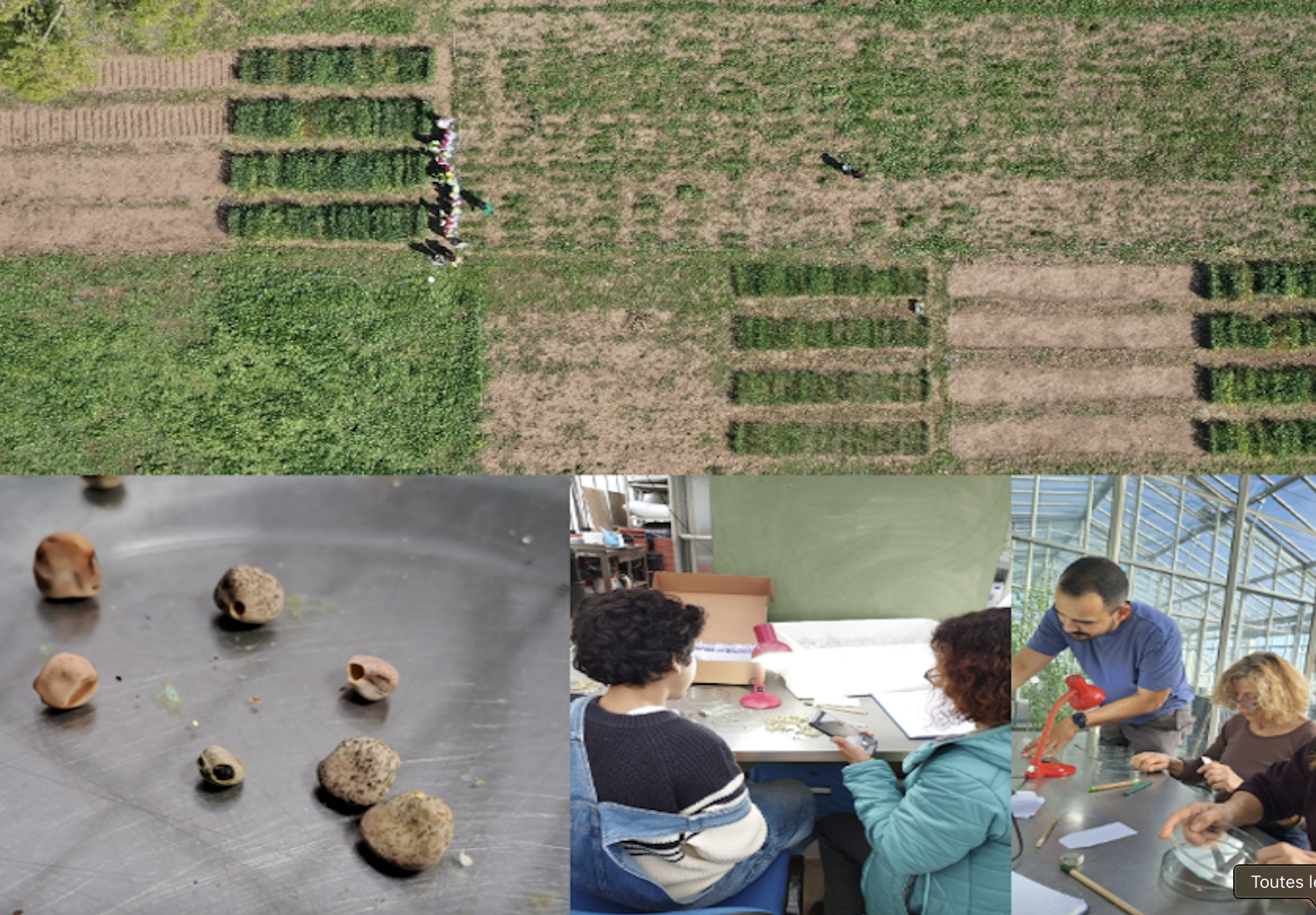
Pea Weevil Screening: A Citizen Science particpatory activity with Oeiras Experimenta (Portugal)
Screening seed weevils in grass pea seeds – a Citizen Science participatory activity within the GPeaPort DIVINFOOD Living Lab in collaboration with Oeiras Experimenta
Grass pea (Chícharo in Portuguese) is a grain legume with high protein content, well adapted to the Portuguese Mediterranean climate. Within the GPeaPort DIVINFOOD Living Lab, participatory research is being conducted to understand the genetic basis of important grass pea agronomic traits. Resistance to Bruchus weevils, a pest which attacks the seeds affecting crop yield and quality, is one of the most important concerns of grass pea farmers and small processors. Some Recombinant Inbred Lines (RILs), resulting from a cross between two grass pea accessions with contrasting levels of seed anti-nutritional factors and pests’ resistance, were sown at the Oeiras Experimenta field recreational farm, in Oeiras, Portugal. These lines are being characterized for many agronomic and quality traits, in a participatory effort among researchers and citizen scientists.
Over several days at the end of January, five citizen scientists from the Oeiras Experimenta project, spanning different generations, helped UNL researchers with seed weighing, as well as screening the presence of this troublesome pest. In the process, they were also introduced to the DIVINFOOD project, to grass pea as a NUC, and to some of the challenges this crop faces in the path to become more relevant in today’s foodscape.
Oeiras Experimenta is a citizen science project (funded by the European Union through the IMPETUS Program) resulting from the partnership between some UNL researchers and the Oeiras Municipality, that teams up with the DIVINFOOD project on grass pea research.

Leave a Reply